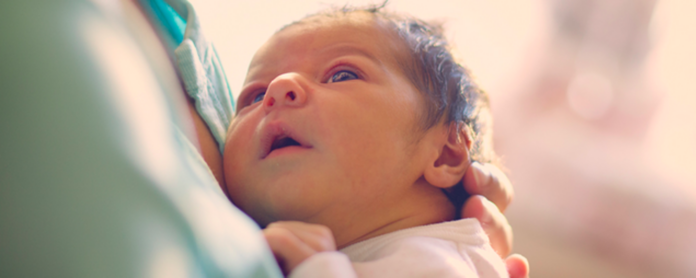Consciousness may emerge before we’re even born, evidence shows
If you watch a child gaze in wonder at the flickering candle on their first birthday cake, it’s clear something is going on behind those big, innocent eyes.
It wasn’t always this way. Rewind the clock, from curious infant to newborn to fertilized egg, that awareness becomes increasingly hard to recognize.
Beyond the philosophical challenge of defining consciousness, scientists have also had a hard time pinpointing precisely when a developing web of neurons has sufficient complexity to not just sense, but also perceive their surroundings.
Some suggest consciousness emerges many months after birth, not long before that first birthday. Others maintain our first moments of awareness could be with us soon after birth.
“Nearly everyone who has held a newborn infant has wondered what, if anything, it is like to be a baby,” says Tim Bayne, a philosopher at Monash University in Australia.
“But of course we cannot remember our infancy, and consciousness researchers have disagreed on whether consciousness arises ‘early’ (at birth or shortly after) or ‘late’ – by one year of age, or even much later.”
To summarize the current state of progress on the topic, Bayne and a small team of neuroscientists and philosophers from Australia, Germany, the US, and Ireland conducted a review of the literature to date.
According to their findings, there’s enough evidence to argue in favor of an early state of awareness, one that could operate long before birth.
Consciousness is the black hole of neurology; a singularity hidden by an event horizon of subjective experience nobody else can access. We can only presume other brains – like our very own – can turn acoustic vibrations into songs of joy and sadness, electromagnetic waves into blue skies and warm sunsets, or the smell of skin into motherly reassurance.
Without any meaningful way to distinguish conscious action from unconscious reaction, a physical theory of human consciousness continues to challenge researchers. We barely understand how it works inside a mature brain, let alone one still under construction.
The implications aren’t trivial, either, stretching beyond neurology into computing, ethics, and even law.
Without a means to share any potential perceptions of the world, babies were once presumed to lack true awareness.
For much of history, well into the 20th century, medical procedures could be conducted on infants with minimal analgesics, if any at all, under the belief that they lacked the awareness necessary for painful stimuli to register as distressing.
The authors of this latest review present four lines of evidence in support of consciousness emerging close to birth, citing advanced connectivity across the brain, indicators of attention, research involving integration of information from diverse senses, and physical markers involved in surprise and reorientation of attention.
(Bayne et al., Trends in Cognitive Sciences, 2023)
“Our findings suggest that newborns can integrate sensory and developing cognitive responses into coherent conscious experiences to understand the actions of others and plan their own responses,” says Trinity College London psychologist Lorina Naci.
That doesn’t necessarily mean consciousness is suddenly switched on at birth, but that we might expect a gradual awakening of experience that develops as synapses merge, senses blend, and cognition builds models that can be challenged as new stimuli appear.
Questions of whether awareness is piecemeal or complete, of whether fetuses dream, or even how we might relate to a newborn’s own awareness, are still far from being answered.
As brain scanning techniques improve and we can better map the complex weaves of neurological networks as they grow, we might come to understand consciousness as a continuum.
This research was published in Trends in Cognitive Sciences.

